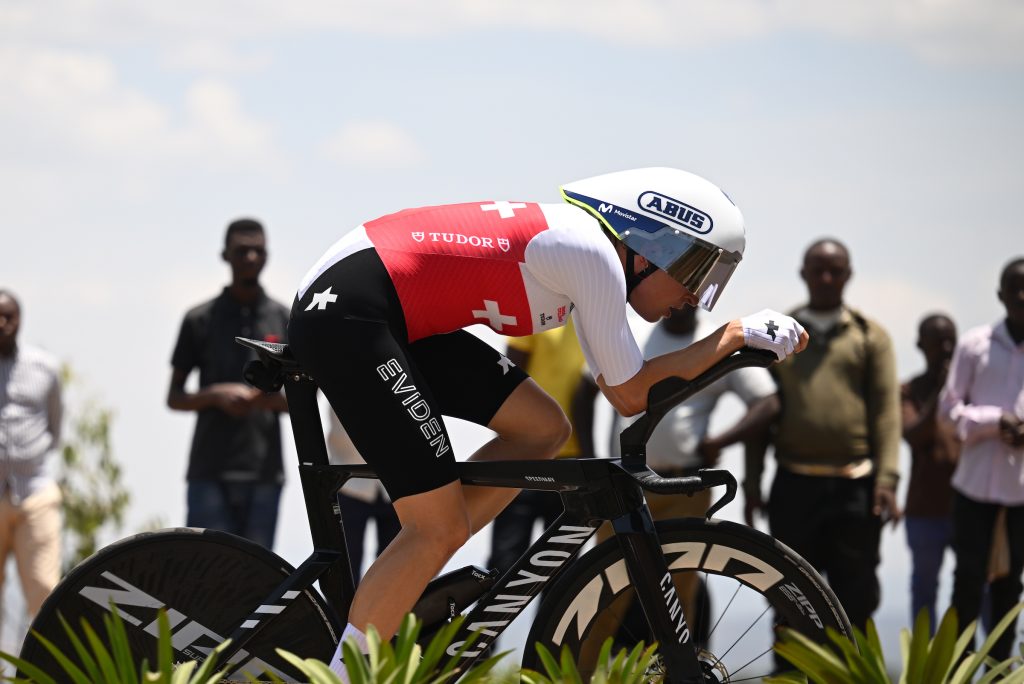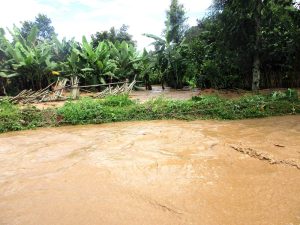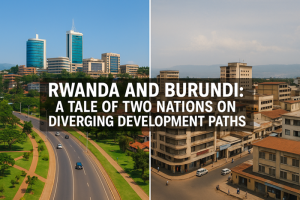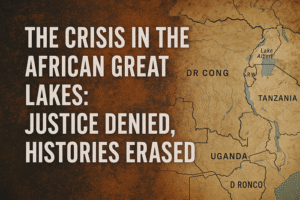Open-visa, infrastructure-ready: Why Rwanda is rewriting hosting rules

By Elysee Nzashimimana – Stella Mucyo
When the world’s best cyclists descend on Kigali from 21–28 September 2025 for the UCI Road World Championships; the first edition ever held on African soil; it is more than a sporting milestone. It is a test case for whether global events can be both world-class and genuinely accessible. Rwanda’s model suggests the answer is YES.
Access starts at the border
For too long, the “world” in world championships has been filtered by consulates. In 2022, more than 100 visa cases for the World Athletics Championships in Oregon were unresolved on the eve of competition, disproportionately affecting athletes from Africa and Asia. That’s not a level playing field; it’s a de facto disqualification at the border.
By contrast, Rwanda allows citizens of all countries to obtain a visa on arrival without prior application. Africans, Commonwealth and La Francophonie nationals receive fee-free entry for short stays, and East African Community citizens receive six months visa-free on arrival. Its policy designed for participation, not exclusion.
The stakes are not abstract. Across Africa, Schengen visa rejection rates reached about 30% in 2022 (vs. 17.5% globally), with several large economies facing 40-50% refusals; burdens that fall heaviest on athletes, artists and students. And we have seen elite cyclists, including Eritrea’s Biniam Girmay, miss major races due to visa denials. Hosting in a visa-open country like Rwanda, is, quite literally, the difference between racing and watching.
The “Global North only” myth
There’s a persistent myth that fairness and quality require hosting in the same handful of wealthy countries. Kigali disproves it. Rwanda has spent the past decades building and operating infrastructure to international standards;and then proving it at scale.
Kigali Convention Centre (KCC) can host5,000+ delegates and has anchored a run of successful summits. BK Arena (10,000 seats) has staged the Basketball Africa League playoffs and finals for multiple seasons, with the 2024 final marking a fourth consecutive showcase in Kigali. The renovated Amahoro Stadium (~45,000) adds a modern national venue to the same sports district.
Rwanda’s hosting track record is broad as well as deep: the Commonwealth Heads of Government Meeting (CHOGM) 2022, the 73rd FIFA Congress (2023), and Women Deliver 2023, one of the world’s largest gender-equality convenings, were all delivered in Kigali. These are complex, high-visibility events with stringent security and logistics requirements.
And the trajectory continues: Kigali is expanding aviation capacity with the new Kigali International Airport in Bugesera, co-financed with Qatar Airways; a long-term bet on connectivity that supports both tourism and major events.
Inclusion you can quantify
If access policies and infrastructure are the inputs, inclusive participation is the output. According to the UCI, 108 nations have registered riders for Kigali; the second-highest number in the history of the stand-alone Road World Championships, with exceptional African participation. That isn’t symbolic; it is the practical consequence of hosting where the barriers are lowest.
Rwanda and the UCI have also leaned into safety tech: for the first time, all riders are fitted with GPS safety trackers to allow faster incident response across Kigali’s hilly, technical course. This is what modernization looks like; pairing access with state-of-the-art organization.
A fairer model for athletes, fans; and economies
Hosting events in Africa would greatly benefit athletes and federations from low- and middle-income countries. It would reduce travel burdens, visa issues, and costs, allowing them to focus on performance. This accessibility would also increase participation from African fans, journalists, and sponsors, enriching the sport where it’s currently underrepresented.
For investors and policymakers, this is also a MICE (meetings, incentives, conferences and exhibitions) story. Kigali’s seamless transition from CHOGM to FIFA, Women Deliver, and UCI isn’t luck; it’s the result of coordinated public investment and a service-oriented operating model. This reliability de-risks future events and boosts related sectors like aviation, hospitality, creative industries, and sports tech, all while demonstrating Africa’s capability to host large-scale events.
Answering the critics
Yes, some will frame any African mega-event through the lens of geopolitics or “sportswashing.” Those debates won’t vanish; and they miss the point. If your definition of fairness includes letting the best compete and the widest audience witness it; with a hosting model that is more fair, more global, and more future facing: lower border friction, proven venues, rising participation from the Global South, and new safety standards on course. Rwanda measures up.
A new standard
The lesson from Kigali is simple: excellence in organization does not require exclusion at the border. An open-visa, infrastructure-ready host can deliver championships that are as competitive as they are inclusive. Going forward, international federations should make “visa justice” a core hosting criterion; alongside venues and budgets.
—
About the Authors:
Elysee Nzashimimana is a communications strategist focused on evidence-led storytelling. Stella Mucyo is a civil-engineer-turned brand architect, building bridges between ideas and impact.
Both are affiliated with the University of Global Health Equity (UGHE), a Partners In Health initiative.

SUBSCRIBE TO OUR NEWSLETTER





















